PRESERVING A MILITARY LEGACY FOR FUTURE GENERATIONS
The following Reflections represents SGT Bill Lee’s legacy of his military service from 1966 to 1969. If you are a Veteran, consider preserving a record of your own military service, including your memories and photographs, on Togetherweserved.com (TWS), the leading archive of living military history. The following Service Reflections is an easy-to-complete self-interview, located on your TWS Military Service Page, which enables you to remember key people and events from your military service and the impact they made on your life. Start recording your own Military Memories HERE.
Please describe who or what influenced your decision to join the Marine Corps.

I grew up in a dysfunctional, alcoholic, domestically violent home on Minneapolis’s North Side. I was just hanging out after being expelled from two separate high schools. My girlfriend, at age 16, was an Irish Catholic beauty on the dean’s list. She had gone away to be a nun but changed her mind. She was also very much out of my league. She was willing to date me, but that was about it. Her dad had been a Marine in WWII and stormed the beaches on Peleliu and Okinawa. To impress him and her, I joined the Marines. It worked! The icing on the cake was when I was in Engineer School and became a Catholic. This move even impressed her Jesuit Uncles. So, I adapted, improvised, and overcame for the first time in my life.
Whether you were in the service for several years or as a career, please describe the direction or path you took. What was your reason for leaving?
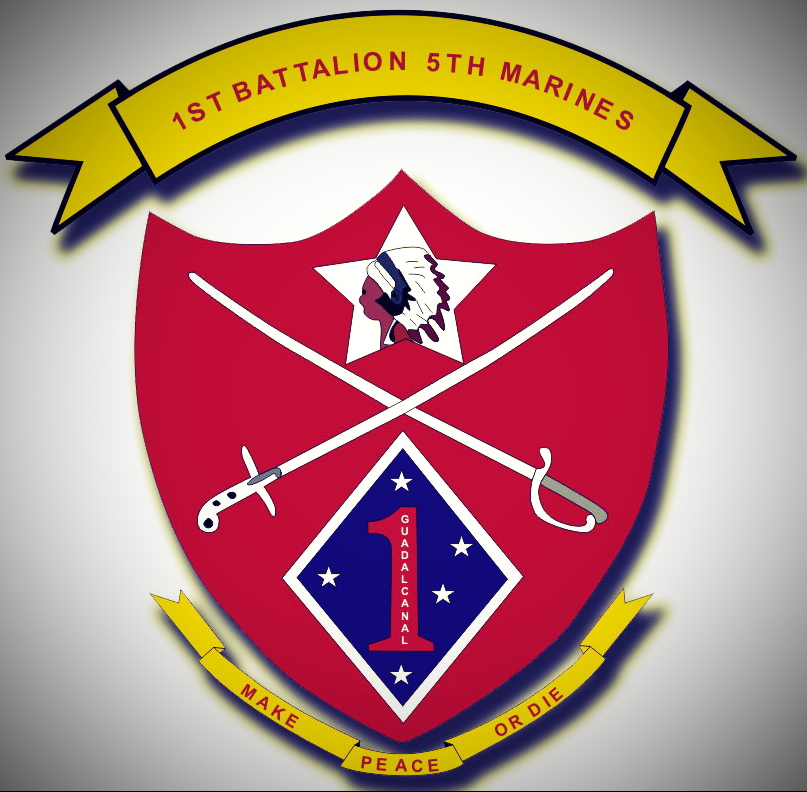
My time in the Marines, two years and ten months, was during the worst time of the Vietnam War. I went to Engineer School and then was sent to Vietnam, where I was assigned to the First Engineer Battalion. I was further assigned to B Company 1st Platoon. This meant that I would be embedded with the 1st Battalion, 5th Marine Regiment. I spent almost all of my time with the Grunts. I was proud to serve with them. My combat tour was from 9 October 67 to 29 October 1968. During this time, the US had 17,817 killed there. Many more were wounded. I was changed in ways I would never be changed again. My soul had hardened, my nerves were shot, and I came home covered in ringworm and rash and weighed 122 pounds. My Irish Catholic beauty, now my wife, hardly knew me. More about that later.
I served six more months on active duty with the 8th Engineers at Camp Lejeune. I shortly made E-5, was awarded a Navy Achievement Medal with a Combat V, and was in charge of menial, dumb, working parties and did my time. Because there was an abundance of NCOs and no real jobs for them, I got a two-month early release. Because of the unpopularity of the military in 1969, I got out.
If you participated in any military operations, including combat, humanitarian and peacekeeping operations, please describe those which made a lasting impact on you and, if life-changing, in what way?
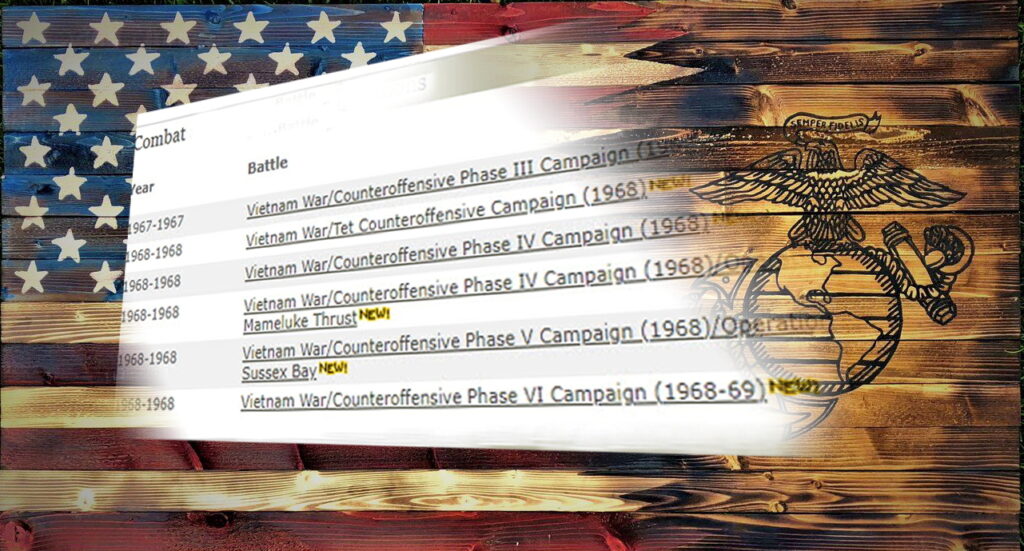
1968 Tet Counter Offensive, Operation Houston 1,2,3 and 4, Operation Mameluke Thrust, and Operation Sussex Bay. Some very rough times, and for the first time during my nineteen years, I excelled. I became an NCO, a Squad Leader of Marines, and was respected. I was genuinely surprised that I survived.
Did you encounter any situation during your military service when you believed there was a possibility you might not survive? If so, please describe what happened and what was the outcome.
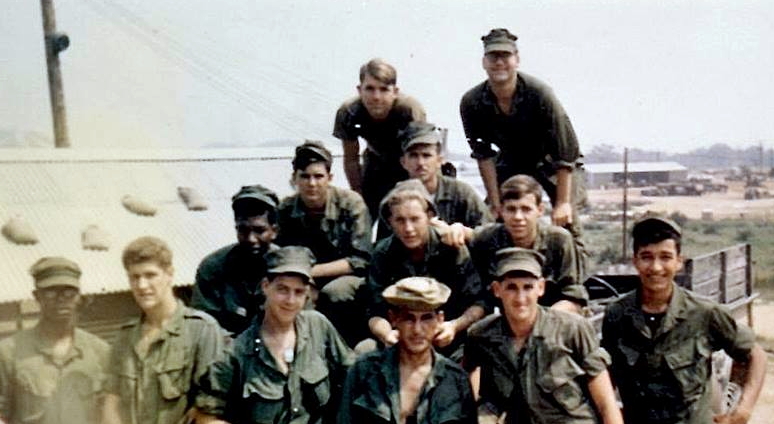
This is an odd question for Vietnam Veterans that served with infantry units in 1968. I had many situations where I thought I would die. We were at Phu-Loc with 1/5 and received thousands of incoming rockets, mortars, and more. It was safer to go to the bush or do the daily road sweep. I was also on an Amtrak that hit a mine, and it blew me up into the air and back on the track. I couldn’t move or hear, but because my ears weren’t bleeding, I wasn’t medevaced. I was able to regroup and rejoin the movement in a matter of hours.
I am sure the protocol has changed since then. During Houston, the engineers with 3/5 were killed or wounded, so they sent five other guys and me to meet up with them at a village in the middle of nowhere. We got there at dusk, and 3/5 wasn’t there. They had a change of plans. We made our way back to the 1/5 roadside parameter through the enemy post-tet territory without an incident. But I was scared shitless in the dark for hours. Getting through our own parameters was no easy task.
Of all your duty stations or assignments, which one do you have fondest memories of and why? Which was your least favorite?
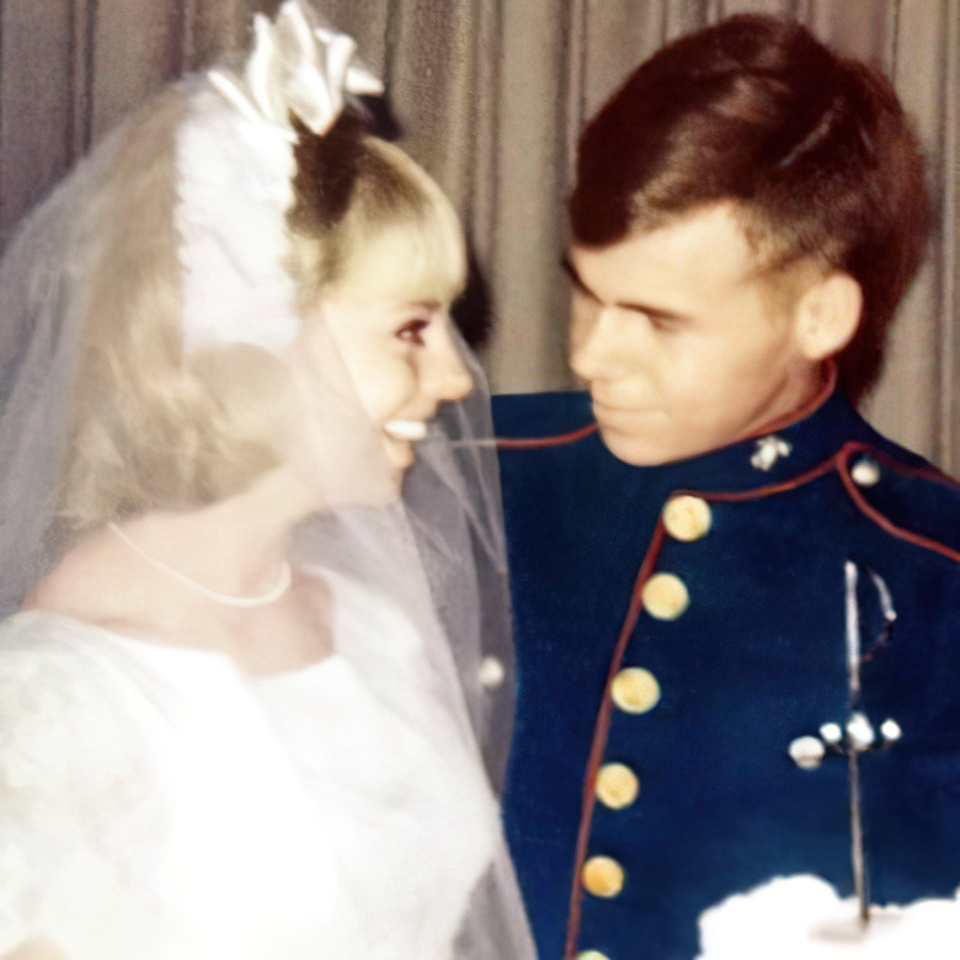
My favorite duty station was Camp Lejeune after Vietnam. My wife had finished Nursing school and was an RN. She worked at the Hospital in Jacksonville, and I was an E-5. We were rich by enlisted standards, and we had friends and partied a lot.
My worst was anywhere in Vietnam during Tet. Death was everywhere.
From your entire military service, describe any memories you still reflect back on to this day.
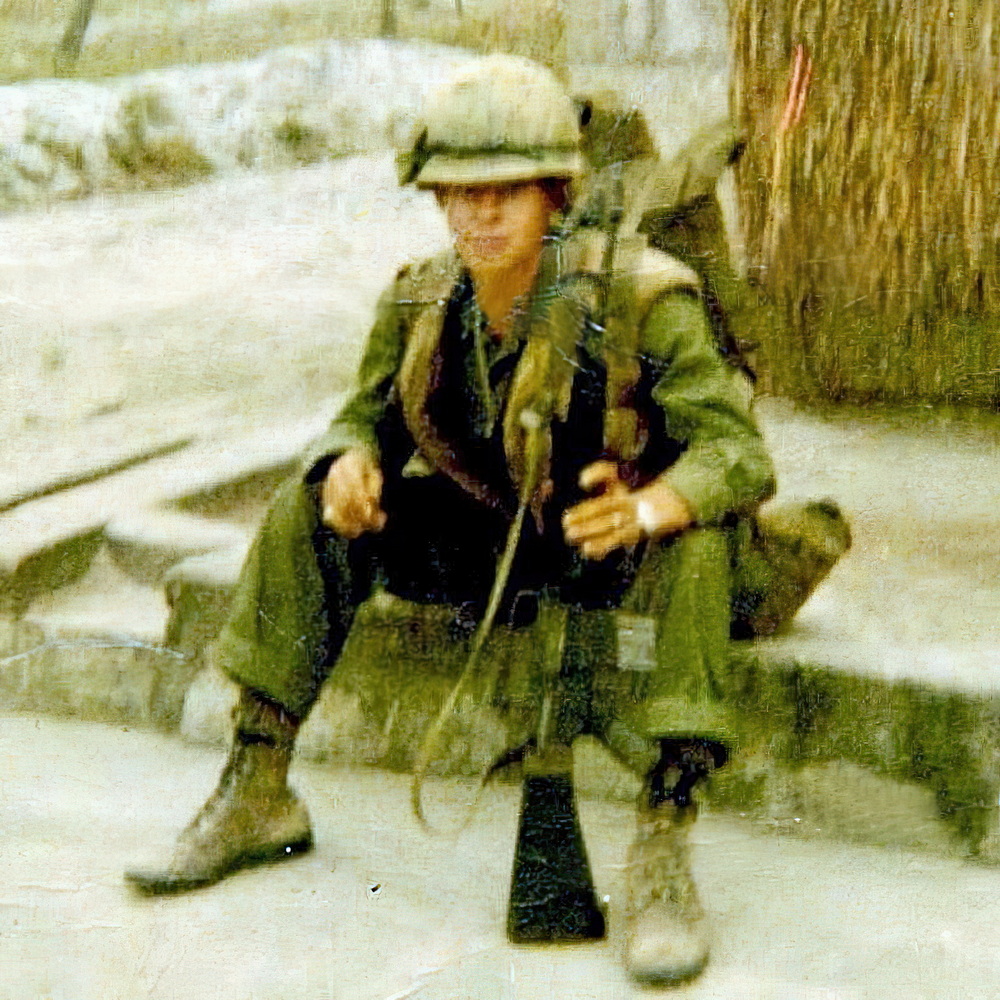
In combat, being a squad leader, an NCO, and winning the guys’ respect. However, I was a good combat Marine, not so good in the rear. Having been a troubled, expelled kid in Minneapolis’s worst neighborhood, I excelled in the Marines and made E-5 in two and a half years.
What professional achievements are you most proud of from your military career?
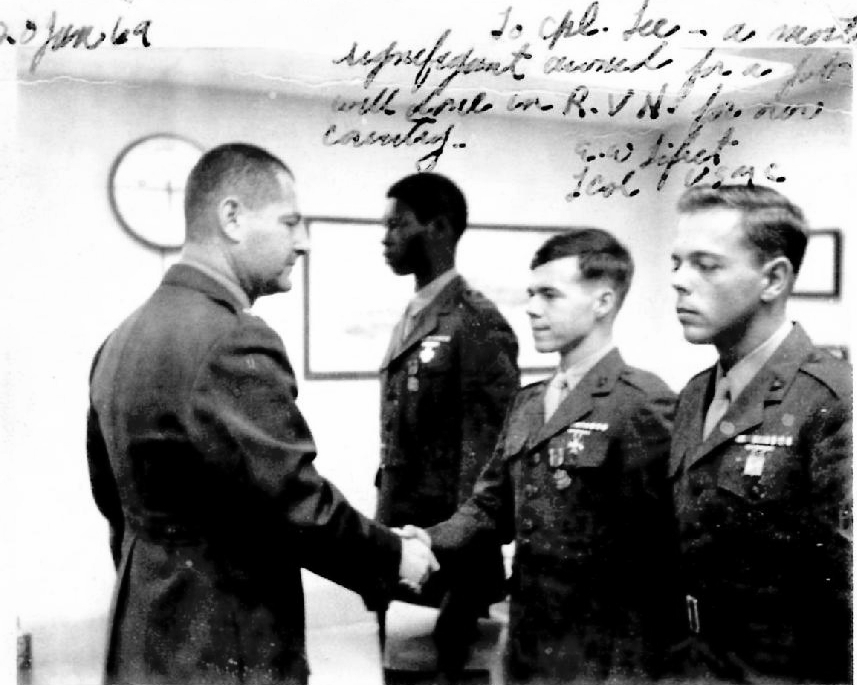
I received a Navy Achievement with a Combat V. Combat Action Ribbon, A PUC, and more.
List the names of old friends you served with, at which locations, and recount what you remember most about them. Indicate those you are already in touch with and those you would like to make contact with.
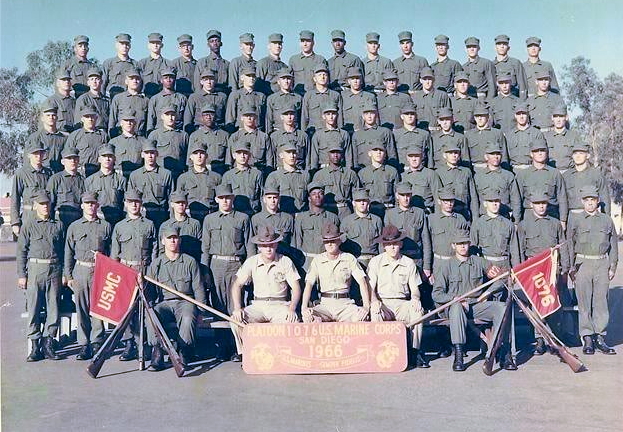
I was in Boot Camp with Bill Farmer, also an engineer who went with a Bridging Company. We had a reunion on a Bridge at Phu-Loc. We were security for the bridge rebuild, and Bill was wounded. I got an email from Bill around 2008 or so, and a few of us from Bootcamp met up in Branson, MO, around 2010.
Can you recount a particular incident from your service which may or may not have been funny at the time but still makes you laugh?
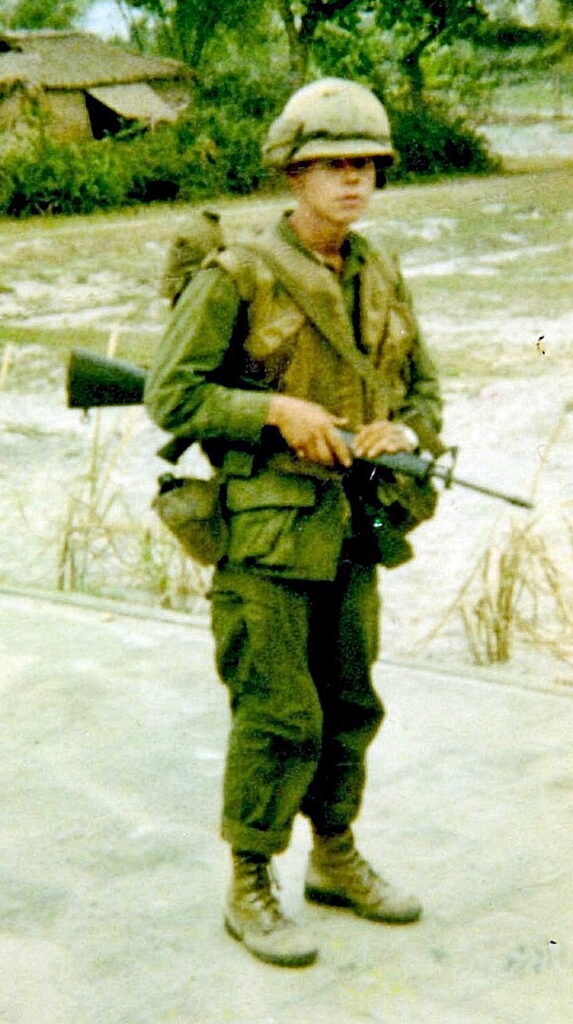
There wasn’t much to laugh about in my Marine experience.
What profession did you follow after your military service, and what are you doing now? If you are currently serving, what is your present occupational specialty?
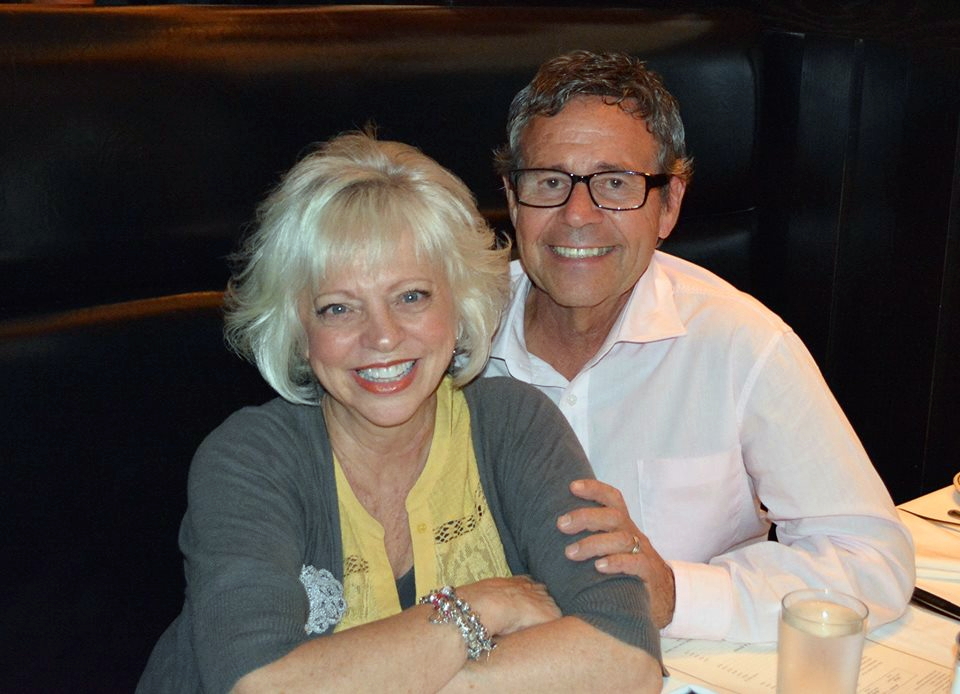
I had adjustment problems for eight years after the Marines. I had horrible PTSD, which didn’t exist until 1980. It was just considered “moral weakness” until then. We weren’t welcome at the VFW or the VA. I turned to alcohol and managed my life with it. Somehow my marriage survived, with no help from me. I went to Rehab in 1977; alcohol prevented me from getting the ghosts out of my closet. There was nothing for us after Vietnam. I went to school and listened to teachers and professors ridicule us for fighting in that war. The entire culture treated us with scorn and ridicule. I nearly ended my own life.
After successfully completing Rehab, I went to the Vet Center to start treating my PTSD. This started my healthy life. I hadn’t done too much harm to my wife and four children, and my saving grace, my wife, stayed with me. She eventually went back to school and became a Doctor of Psychiatry. I became a Realtor, and home builder, which I did until I got sick from Agent Orange. I now volunteer at her and my daughter’s mental health clinic.
What military associations are you a member of, if any? What specific benefits do you derive from your memberships?
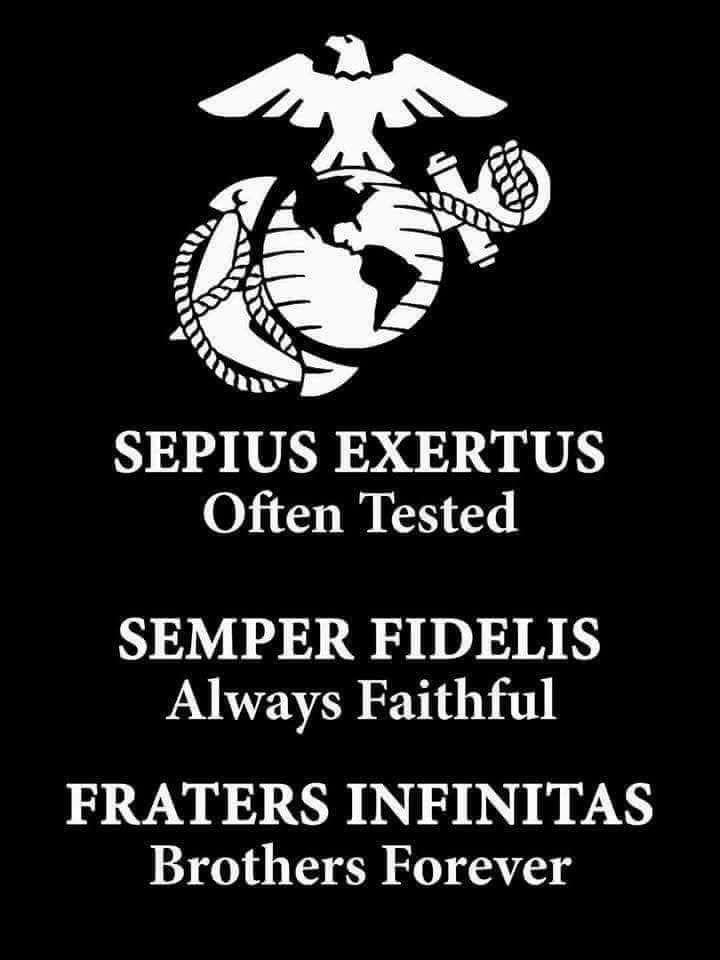
I haven’t joined the VFW because I live a sober life. I did join the Marine Corps League; however, after one meeting, I determined it wasn’t for me. I’m sure they are a wonderful organization, however.
In what ways has serving in the military influenced the way you have approached your life and your career? What do you miss most about your time in the service?
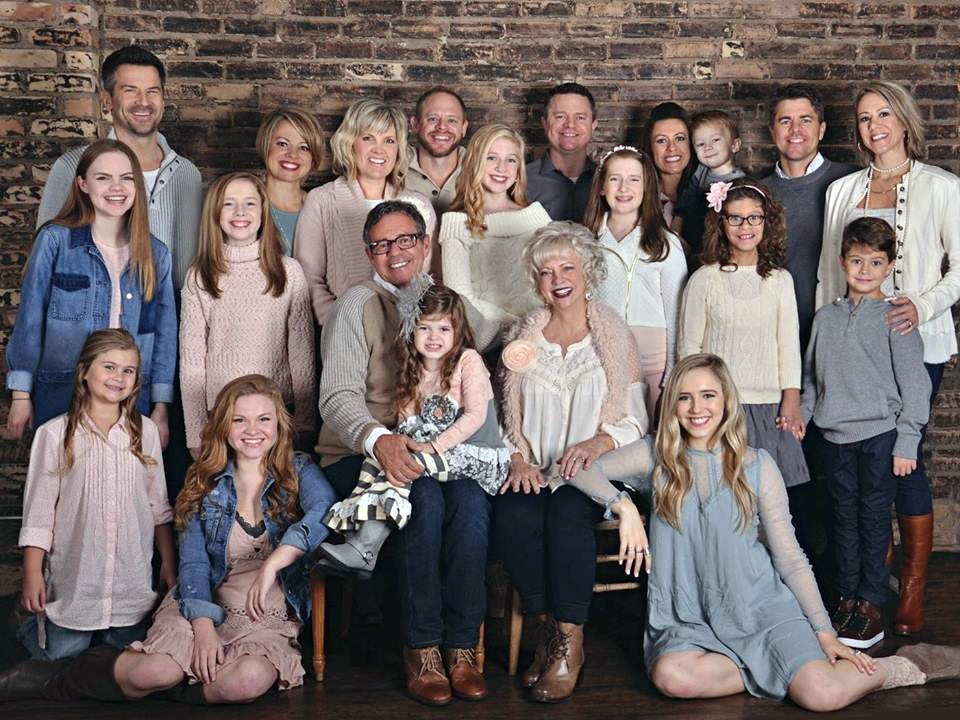
The Marines have affected every cell of my body. My toughness, my grooming, my work ethic, and more are all Marine. I have run 65 Marathons, including Boston, and it is all about being a former Marine. The last five-mile of all my Marathons have been dedicated, one each to my five friends that were killed in Vietnam. Charles T. White, Michael F. Fanning, James Jako, Gregory H. Stencil, and Thomas C. Henry.
Based on your own experiences, what advice would you give to those who have recently joined the Marine Corps?
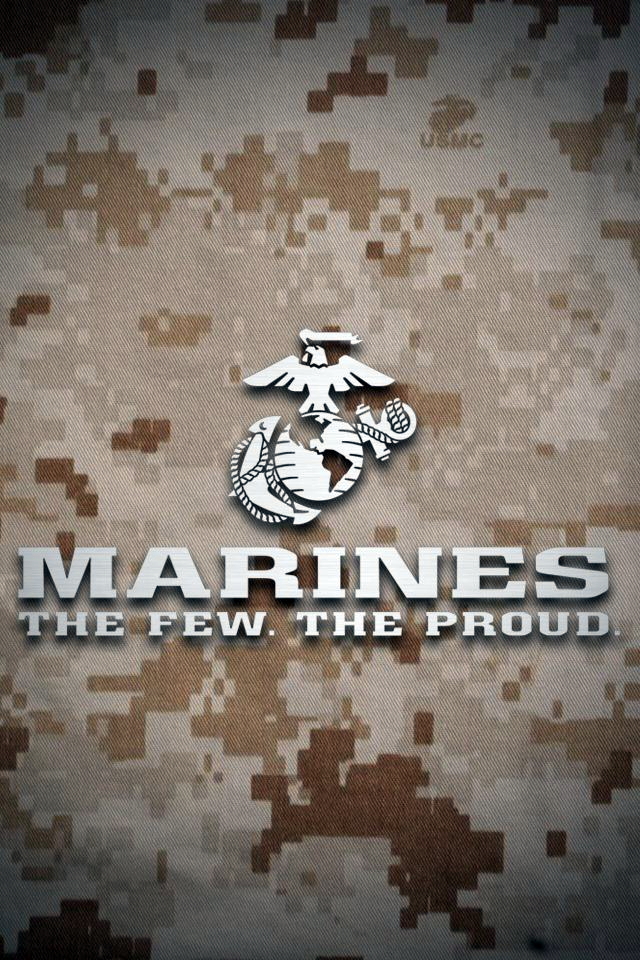
That is precisely what I tell young people all the time. Join the Marines, and you will have bragging rights your whole life.
In what ways has togetherweserved.com helped you remember your military service and the friends you served with.
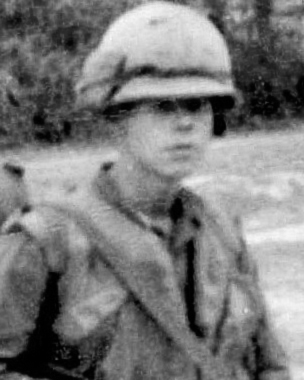
I have re-connected with five friends on TWS. We even had a reunion in Branson, MO.
PRESERVE YOUR OWN SERVICE MEMORIES!
Boot Camp, Units, Combat Operations
Join Togetherweserved.com to Create a Legacy of Your Service
U.S. Marine Corps, U.S. Navy, U.S. Air Force, U.S. Army, U.S. Coast Guard

0 Comments